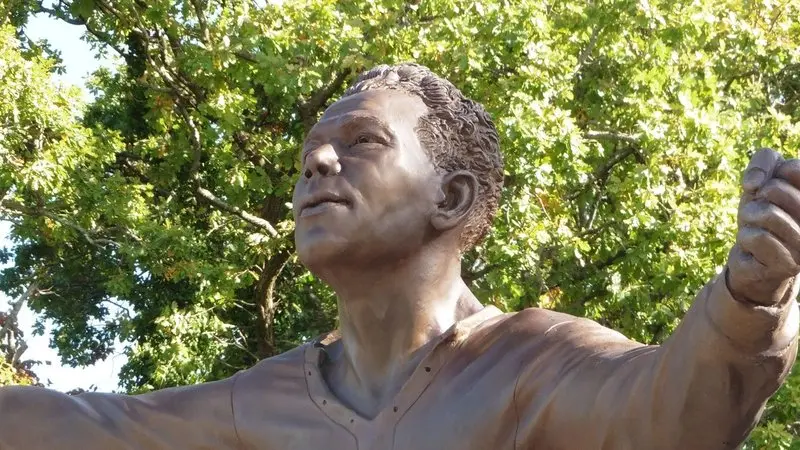Devon County Council has admitted that the Heavitree & Whipton Active Streets trial it launched in August 2023 led to a “lack of trust in the decision-making process” at County Hall and a perception of a “downward spiral” in Exeter highways management.
It also said that focus groups held in November, after the trial scheme was halted earlier than planned, found that “multiple issues were getting worse” including traffic on scheme boundary roads, deteriorating public transport provision and a lack of long-term infrastructure investment.
A report to a meeting of Devon County Council’s Exeter Highways and Traffic Orders Committee held on Tuesday also found broad support for safer travel and a need to “rethink” the city’s streets. However it confirmed that the county council has no plans for any new schemes in the area.
County councillor Carol Whitton, who chairs the committee, said: “We must note that the consultation processes were not what they could have been and we’ve had to deal with the fallout from that and try to restore community faith”.
 Heavitree and Whipton Active Streets trial scheme map
Heavitree and Whipton Active Streets trial scheme map
The Heavitree & Whipton Active Streets trial began in August 2023. It was expected to take place over an eighteen month period, including an initial six month statutory consultation which was extended by three months in November.
The scheme had an initial budget of £190,000 which was increased to £250,000 in June last year before the trial was halted following widespread controversy.
It employed modal filters and bus gates at several locations including Ladysmith Road, Hamlin Lane, Whipton Lane and Vaughan Road which were intended to reduce motor vehicle through-traffic and increase walking and cycling in the trial area, in which around 17,000 people live.
The trial consultation yielded almost 9,000 responses, 82% of which were opposed to the scheme. Campaigners held protests on the scheme boundary roads during the consultation period and collected petition signatures in the High Street.
The public gallery at Exeter Highways and Traffic Orders Committee meetings was often packed during the trial period, with members of the public and campaigners making passionate speeches both for and against the scheme.
The committee decided to end the trial in June last year, eleven months after it began. All the modal filters were removed by the end of the following month.
At the same time as deciding to end the trial the committee agreed that local schools, community leaders and residents should be consulted to “identify further measures or amendments which will restrict unwanted rat running in residential areas, will encourage those who can and particularly children to walk and cycle or wheel, and will allow residents to access the places they need to”.
 Exeter Highways and Traffic Orders Committee meeting, 4 February 2025
Exeter Highways and Traffic Orders Committee meeting, 4 February 2025
Devon County Council officers then met with six trial area schools between September and November last year. Feedback highlighted safety concerns and the need for cycle parking facilities.
Two focus groups were also held in November to “explore key issues in Heavitree and Whipton, listen to each other’s perspectives, identify areas of common ground and identify next steps”.
Their facilitators found a range of safety concerns and criticisms of council communications, data presentation and decision-making mechanisms.
Feedback included that Exeter City Council and Devon County Council “don’t communicate or like each other” and that traffic changes “should happen with a community, not to a community”.
Participants also said traffic and travel times were getting worse alongside deteriorating public transport provision.
The focus group facilitators said that participants were respectful “even when discussing conflicting views” and “valued having a space to speak and listen to each other in person” in contrast to “online forums where views appeared more divisive”.
Those both for and against the Heavitree & Whipton scheme found common ground on the issue of safety, agreeing that there are too few safe travel options, in particular for “children, elderly and vulnerable street users”.
At Tuesday’s meeting county councillor Tracy Adams said it was “heartwarming” to see agreement at the end of what had been a “very difficult trial”, adding that the focus group findings should not be shelved.
The committee also agreed that safety should be a key future focus, with several members pushing for more action including city councillor Laura Wright, who asked if a dedicated project manager could be identified to develop the focus group findings.
Tracy Adams said that the county council should not “wait for there to be a horrible accident outside Ladysmith School” and city councillor Lynn Wetenhall asked officers to consider implementing a school street scheme in Ladysmith Road, a key trial area route.
But county council highways officers said there was no funding available for any further interventions in the area.
Instead, officers said they would continue to talk to the six trial area schools with the aim of facilitating safe travel for schoolchildren but did not say when they would bring anything back to the committee.
Tracy Adams said that residents had made their views clear and that the council “should analyse itself” and reflect on how it was addressing residents’ priorities.










